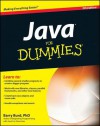Dor Does Books
Oh, hai! I read books, then I write down what I think of them.
Not what I wanted, but still super readable - A Dictionary of Mutual Understanding by Jackie Copleton

[This book was provided to me free of charge by the publisher Cornerstone, assisted in this awesomeness by NetGalley. I thank them muchly.]
I'm usually leary of books set in countries the author is not from, especially countries like Japan which are so very different from western nations. However, Jackie Copleton's A Dictionary of Mutual Understanding comes with an extremely encouraging pedigree: it was on the Bailey's Prize long-list and Copleton is herself is a graduate of Cambridge and Glasgow, so I had high hopes of this one.
Amaterasu Takahashi survived the atomic bombing of Nagasaki. Her daughter and grandson did not. For almost 40 years she's lived with the guilt of their deaths, until a man with a badly scarred face turns up on her American doorstep bearing a box of secrets. He claims to be Hideo, her grandson, rescued from the ash and debris, then raised by a man Ama would rather forget. To find the truth, she must revisit her memories of days long past, of before the war, and of her belief that everything she ever did was to protect her family.
I didn't care for this book. It's not a bad book, it just didn't offer what I look for. I wanted a book which felt authentic, which told a story I don't know from a perspective completely unfamiliar to me. ADoMU doesn't, not because the author is British, but because it's barely about Nagasaki and its aftermath. Instead its focus is the relationship between Ama and her daughter - Women's Fiction then, which is not always my thing.
Although it opens with this mystery - is the young man at the door truly the grandson Ama believed killed the day the bomb fell? - the question is inconsequential, a jumping off point for Ama's recollections, her diary entries and the papers she is given by the young man. ADoMU covers a lot of ground and consequentially its touches on its subjects are light where I would have preferred a hefty commitment to fewer of them, especially as they were the more interesting (and original) aspects.
If I'd been more caught up in the character, or the writing, I'd feel less short-changed, especially as this book goes down the lazy path so beloved by westerners writing about Japan. I was left very dissatisfied - Ama never feels like an 80-odd year-old Japanese woman. There was no reflection or sense that she'd become a different person at 80-odd than she'd been on the day the bomb fell. The backdrops - of 30s Japan, of Japan at war - felt shallow, never quite coming alive; at one point the local festival of Shoro-Nagashi is described as being "unlike any other in Japan", but the description makes it sound like a variation of Obon. I want to know how it's different, why it's different, and what Ama thinks about it. When she moves to the US, how does it feel to lose this yearly conversation? What was Shoro-Nagashi like the year after the bomb?
There's also least one aspect felt as though it'd been written with Western attitudes in mind, rather than Japanese. I'm not accusing the book of errors (because I honestly wouldn't know), I was just thrown a bit by the suggestion that 16 is young for a relationship in a country where the legal age of consent is 13 (in certain circumstances). It was one of a few small details which contributed to a lack of immersion.
I think it's important to note there's an ongoing background discussion of white voices telling stories which belong to other cultures. This book left me with an overwhelming desire to read something about the legacy of the nuclear bombs by a Japanese writer but Google is bringing me little: everything I can find in English appears to be by western authors. They must exist, surely, but if they're getting translated I can't find them.
A Dictionary of Mutual Understanding is a good book, it just wasn't what I was looking for. I also hope the Bailey's nomination doesn't put potential readers off; this isn't one of those highbrow "hard" reads, it's an interesting one which must surely be a shoe-in for the Richard and Judy Bookclub. The important thing to note is that, despite my complaints, this is one super-readable book and you could do a lot worse when choosing something to fling in your suitcase this summer.
3.5 stars.
 1
1







